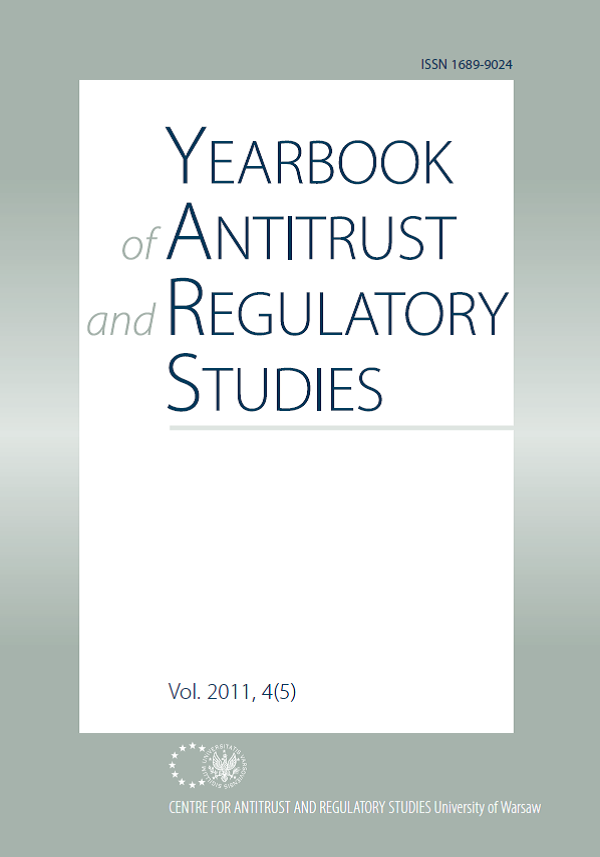Polish Antitrust Experience with Hub-and-Spoke Conspiracies
Polish Antitrust Experience with Hub-and-Spoke Conspiracies
Author(s): Antoni BoleckiSubject(s): Business Economy / Management, Commercial Law
Published by: Wydawnictwo Naukowe Wydziału Zarządzania Uniwersytetu Warszawskiego
Keywords: hub-and-spoke; AtoBtoC coordination; exchange of information; vertical restraints; RPM; horizontal effect; standard of proof; duration of an agreement;initiator of the cluster;
Summary/Abstract: A hub-and-spoke conspiracy involves an exchange of confidential information primarily concerning future prices. The exchange takes place generally between competing distributors via a common supplier but a reverse relationship is also possible. The essence of hub-and-spoke lies in the fact that there is no direct contact between competitors – the party guaranteeing the information flow is normally the common supplier (distributor in a reverse scenario). A hub-and-spoke conspiracy was first identified and specifically described by the British Office of Fair Trade in 2003. There are currently several pending investigations concerning hub-and-spoke practices in a number of EU Member States including Germany, France, Italy and the UK. Three cases of that type have been so far assessed in the Polish antitrust practice: Polifarb Cieszyn Wrocław (2007), Tikurilla (2010) and Akzo Nobel (2010). The main objective of this article is the reconstruction of hub-and-spoke conduct in Poland. Commented will also be issues such as: the connection between hub-and-spoke practices and ‘classic’ retail price maintenance; standard of proof, and duration of the agreements.
Journal: Yearbook of Antitrust and Regulatory Studies (YARS)
- Issue Year: 4/2011
- Issue No: 5
- Page Range: 25-46
- Page Count: 22
- Language: English

